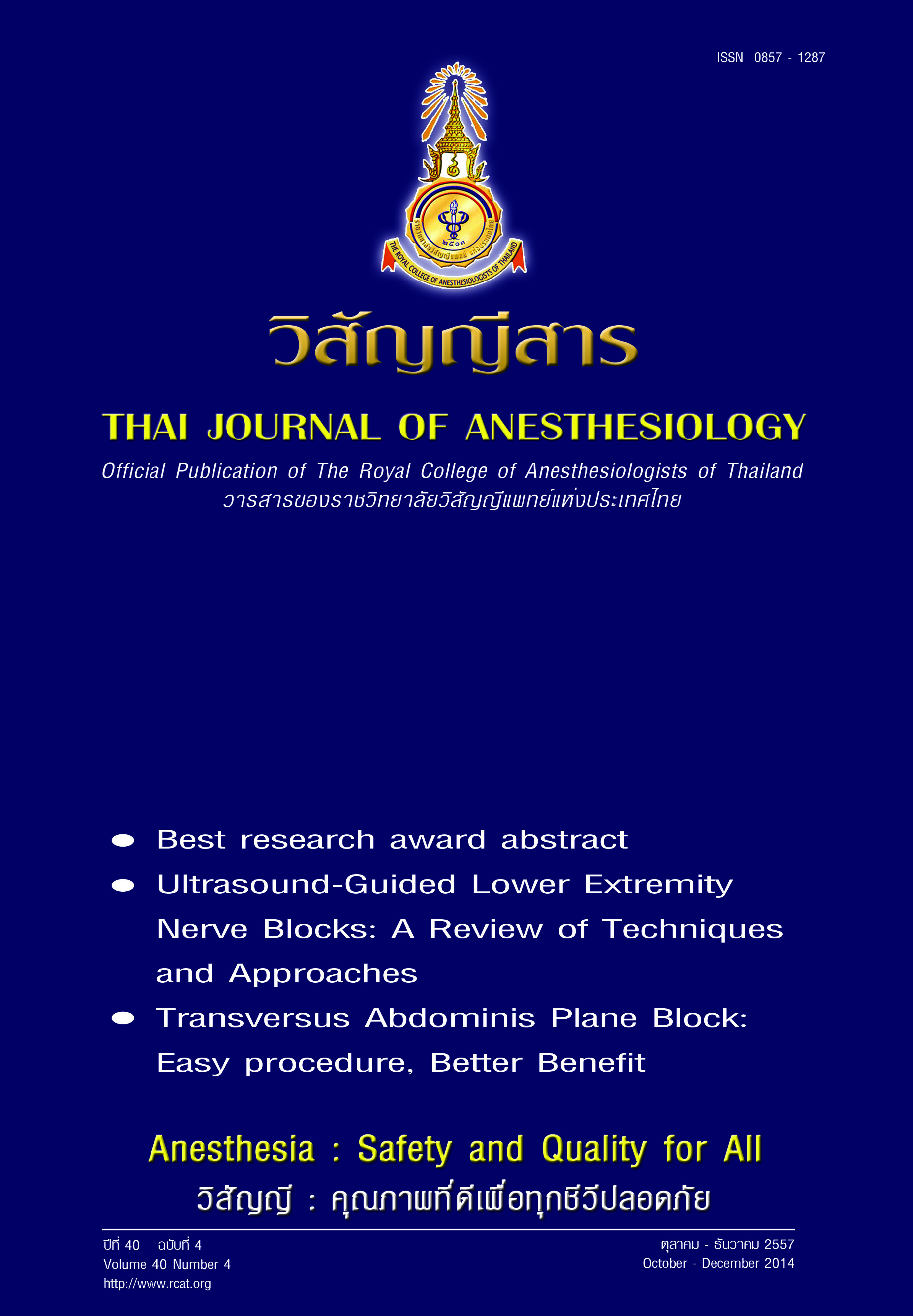A Randomized Controlled Trial of Preoperative Carbohydrate Drinks on Postoperative Walking Capacity in Elective Colorectal Surgery.
Main Article Content
Abstract
Background: Prolonged starvation leads to increase in catabolic pathways, nitrogen excretion and decreases protein synthesis; these effects might increase the risk of postoperative complications. The oral administration of carbohydrate drink has been shown to reduce internal glucose consumption, metabolic disruption, postoperative losses of nitrogen and protein and preserve lean body mass and muscle strength. However there is no study showing the effect of carbohydrate drink on postoperative clinical outcome.
Objective: To investigate whether preoperative oral carbohydrate loading improves postoperative walking performance and postoperative insulin resistance in patients undergoing elective colorectal surgery.
Methods: Thirty patients undergoing elective colorectal surgery were randomly allocated to receive either 12.5% oral carbohydrate (CHO) drink (N = 16) or pure water (N = 14). The patients in the both groups received 800 ml of one of the drinks the evening prior to surgery and another 400 ml in the morning of the operation day. Primary outcome was2 - minute walk test at 24, 48 and 72 hours after surgery. Secondary outcomes were serum insulin and glucose concentrations at 24 hours after the operation, 24 - hour urine urea nitrogenon the first three postoperative days, postoperative pain at rest and on mobilization, duration of hospital stay and patient satisfaction.
Results: There were no statistical significant difference in patient demographics data and 2MWT on the first three postoperative days. However the postoperative serum insulin and glucose concentrations were higher in patients receiving CHO drink (P = 0.01 and 0.04 respectively). Postoperative pain at rest and on mobilization, duration of hospital stay and patient satisfaction were similar between both groups.
Conclusion: This study is going on collecting data. Until now, the preliminary data has not shown any differences of CHO drink on functional capacity, postoperative pain and duration of hospital stay. The complete number of total sample size is encouraged to do a final analysis in the future.


